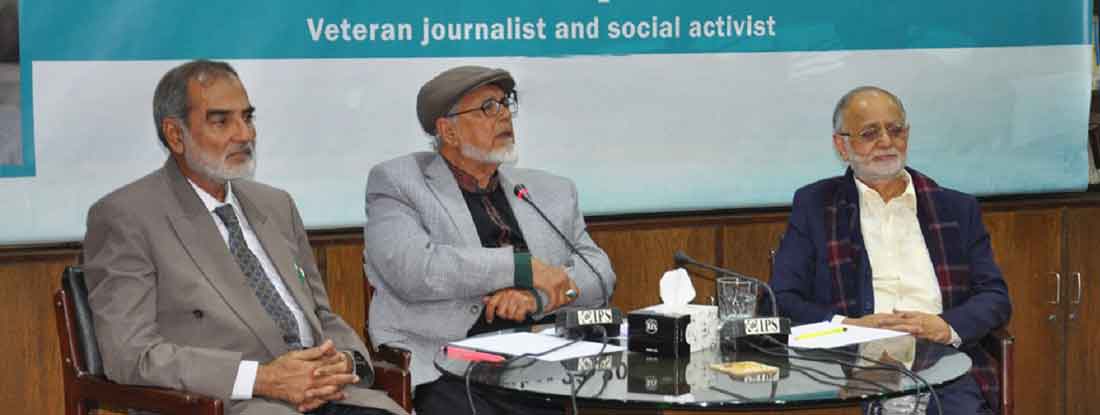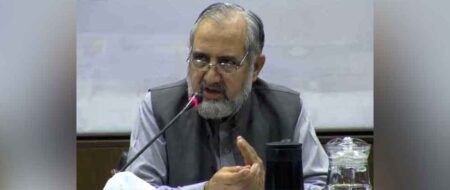An evening with Ariful Haque Arif
Lack of objectivity, prejudice and partisan approach by journalists hurting the profession, impairing the society
The standard of journalism in Pakistan is gradually deteriorating as many journalists have become biased parties, listening to one side, and then building and reporting narratives in a distorted way. This way, they are not only failing to report the truth but also creating instability and confusion in the society.
These views were expressed by Ariful Haque Arif, a veteran journalist and social activist, during a session held at IPS on November 23, 2022. The discussion was also partaken by Chairman IPS Khalid Rahman, Saleem Bismil, former secretary, AJ&K, Dr Ijaz Shafi Gilani, founder Gallup Pakistan, Rauf Klasra, a renowned journalist and columnist, and other prominent media persons.
Presenting his observations on the current situation of journalism in Pakistan, Arif stated that extreme polarization, blame games, false narrative building, and threatening of opponents is having significant repercussions on the country and its society. Due to the causal effect of journalism in politics, and in turn on the society as whole, a journalist should not act as a powerbroker, unless it falls under the umbrella of national interest and political stability. He emphasized that media persons need to learn lessons from pre-independence journalists like Zafar Ali Khan, Maulana Muhammad Ali Jauhar, Abdul Majeed Salik, Charag Hasan Hasrat, and Ghulam Rasool Mehar, who were leaders as well as authors and historians at the same time, uniting people on one hand, and shaping public opinion for the better on the other.
The speaker also saw building and strengthening of independent institutions indispensable for development, growth and stability of the country. To achieve this, he viewed, politicians and policymakers needed to be strong, sincere and honest, making sure that they do not politicize the institutions for their own gains. On the other hand, journalists must also maintain objectivity to preserve media as an effective pillar of the state.
Speaking earlier about the journey of his professional career, which started in April 1967, Arif apprised the audience that he not only covered important national and international events but also reported high-profile political cases including the imprisonment of bureaucrat Altaf Gohar, Chaudhary Zahoor Ilahi, Nawab Akhbar Bugti, and other politicians.
He further shared that during his long innings with the Jang Group, he developed close acquaintance with prominent personalities, social activists, ulema, and politicians including Pir Pagaro, Syed Muhammad Taqi, Muhammad Khan Junejo, Abdul Sattar Afghani, Waris Mir, Professor Ghulam Azam, and others.
It is pertinent to mention here that Arif is a veteran journalist and social activist having more than 50 years of experience. He has worked as a court reporter, political reporter, and diplomatic correspondent with the Jang Group of Newspapers. Before being appointed as director of Geo TV, he had worked for Geo TV Network under different assignments including chief of censor board, where he developed, codified, and implemented censor policy.












